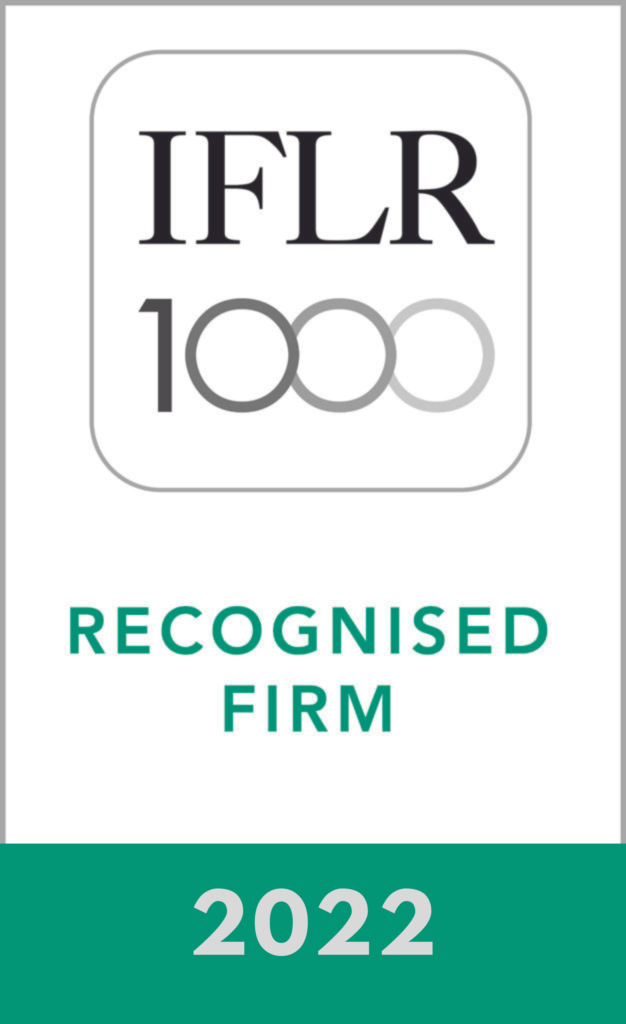1. State of Orissa & Ors vs. M/s Utkal Distilleries Ltd
Citation: State of Orissa & Ors vs. M/s Utkal
Distilleries Ltd.; (2022) 5 SCC 326, 2022 SCC OnLine SC 259, Civil Appeal No. s 5666 – 5668 of 2009, Supreme Court of India; decided by Hon’ble Justice L Nageshwar Rao & Hon’ble justice B.R. Gavai, 03.03.2022
Ratio: The Supreme Court held that the State has power to levy excise duty only in respect of the alcoholic liquor for human consumption. The term ‘Excisable article’ has been defined to be any alcoholic liquor for human consumption or any intoxicating drug.
2. Aanchal Mittal and Ors v Ankur Shukla
Citation: Aanchal Mittal and Ors v Ankur Shukla; CM(M) 687/2021, 2022 SCC OnLine Del 633; Delhi High Court; decided by Hon’ble Justice Amit Bansal.
Ratio: Petitioner being the partner sought access to the accounts of the Partnership Firm and filed suit before the courts at Delhi on grounds that business was being conducted in Delhi, despite the registered offices of the partnership firm being in Hyderabad.
Held, there is no principal or subordinate office of the LLP in the State of Delhi and neither are the books of accounts kept in Delhi, therefore, there is no cause of action in respect of the present suit, which is arising within the territorial limits of the Courts in Delhi. The Delhi High Court has held that parties cannot confer jurisdiction on a court by an agreement if the court otherwise does not have such a jurisdiction.
3. Darshan Kaur Bhatia vs Ramesh Kumar & Anr
Citation: Darshan Kaur Bhatia vs Ramesh Kumar & Anr; Civil Appeal No 1701-1702/ 2022; Supreme Court; decided by Hon’ble Justice Sanjay Kishan Kaul and Hon’ble Justice M.M. Sundresh
Ratio: The Supreme Court held that an owner loses his right of eviction, if a person has possessed the property by way of adverse possession for more than 12 years
Similarly, the adverse possession holder can file a suit for declaration of title on the basis of possession getting matured into ownership.
4. Sudhir Kumar Hasija vs Assistant Commissioner of Income-tax
Citation: Sudhir Kumar Hasija vs Assistant Commissioner of Income-tax; Crl. O.P. No. 27922/ 2017. Decided by Hon’ble Justice Sathish Kumar.
Ratio: Madras High Court held that where there were two PAN numbers allotted to assessee and it had filed its return of income in respect of one of PAN numbers without any default and it had already surrendered second PAN number. Therefore, such an assessee could not be prosecuted on ground that assessee had not filed return concerning its second PAN number.
5. D. Vidya Sagar vs Union of India
Citation: D. Vidya Sagar vs Union of India; WP (PIL) No.89/2019, 2022 SCC OnLine TS 421: (2022) 3 ALT 203, Telangana High Court; decided by Hon’ble Chief Justice Satish Chandra Sharma and Hon’ble Justice N. Tukaramji.
Ratio: The Andhra Pradesh High Court recently ruled that the road tax paid under the Motor Vehicles Act while purchasing the cars, and collection of toll tax at National Highway Toll Booths does not amount to double taxation.
6. Surjeet Singh Sahni vs State of UP & Ors
Citation: Surjeet Singh Sahni vs State of UP & Ors; SLP (C) 3008/2022, 2022 SCC OnLine SC 249, Supreme Court of India; decided by Hon’ble Justice Mr. Shah.
Ratio: The Supreme Court held that mere representation does not extend the period of limitation and the aggrieved person has to approach the Court expeditiously and within reasonable time.
No writ under Article 226 of the Constitution of India shall be maintainable and/or entertainable for specific performance of the contract and that too after a period of 10 years by which time even the suit for specific performance would have been barred by limitation.
7. Satyanarayan Bankatlal Malu and Ors. vs. Insolvency and Bankruptcy Board of India and Ors.
Citation: Satyanarayan Bankatlal Malu and Ors. vs. Insolvency and Bankruptcy Board of India and Ors. (14.02.2022 – BOMHC): 2022 SCC OnLine Bom 310; Decided by Hon’ble Justice Mr. Sandeep K. Shinde
Ratio: The Bombay High Court interpreted the evolution of Section 435 of the Companies Act, 2013 and Section 436 of IBC and observed that the Special Court which is to try offences under IBC is the Special Court established under Section 435(2) (b) of the Companies Act, 2013 which consists of Metropolitan Magistrate or Judicial Magistrate First Class.
8. Vinod Tarachand Agrawal Resolution Profession of Mayfair Leisure’s Limited:
Citation: Vinod Tarachand Agrawal Resolution Profession of Mayfair Leisure’s Limited: Company Appeal (AT) (Ins)No. 637 of 2021, 2022 SCC OnLine NCLAT 82, NCLAT New Delhi; Decided by Hon’ble Justice M. Venugopal (Judicial) and Hon’ble Dr. Ashok Kumar Mishra (Technical)
Ratio: NCLAT observed that if granting 90 days helps the Corporate Debtor to revive, then the basic objective of the IBC will be met by noting that liquidation is the last resort and stated that it is of the subjective opinion that no prejudice will be caused in allowing the instant appeal to prevent an aberration of justice and to promote substantial cause of justice.
This order is in line with the order of the Supreme Court in Committee of Creditors of Essar Steel India Limited vs. Satish Kumar Gupta wherein it has held that the NCLT or the NCLAT has discretion to extend the time of CIRP period even beyond 330 days in certain exceptional cases.
9. Jasin Jose VS Directorate of Enforcement, Kochi:
Citation: Jasin Jose VS Directorate of Enforcement. Kochi: I.A (IBC) 100/2022(KOB)/ 2019. Decided by Hon’ble Justice Ashok Kumar Borah (Judicial) and Mr. B Anil Kumar (Technical).
Ratio: The Adjudicating Authority acknowledged that Section 32A of the Insolvency and Bankruptcy Code (IBC) and Section 5 of the Prevention of Money Laundering Act (PMLA) have an overriding effect, but also considered the objective of the IBC, which emphasizes speedy resolution of corporate disputes. The Tribunal recognized that Section 32A of the IBC, enacted after Section 5of the PMLA, prevails over the latter. However, the Tribunal clarified that it does not have the authority to decide on the constitutional validity of the statutes in question. Instead, the Tribunal has the power under the IBC to issue processes and conduct proceedings, and Section 32A grants it sufficient jurisdiction for this purpose.
The applicant liquidator’s counsel stated that the value of the attached property related to the Corporate Debtor is Rs. 927.64 lakh, while other properties in the provisional attachment order are of a personal nature or belong to other corporate bodies, which are not relevant to this case. The Tribunal also noted that the current case is an in-rem case (pertaining to the property itself) rather than an in personam case (relating to a specific individual), and it has jurisdiction over the property in question.
10. Jitendra Kumar Singh Vs. M/s Vishakarma Tool Works:
Citation: Jitendra Kumar Singh Vs. M/s Vishakarma Tool Works: Comp. App (AT) (Ins) 437/2022 NCLAT, 2022 SCC OnLine NCLAT 3310, Principal Bench, New Delhi. Decided by Mr. Justice Rakesh Kumar Jain (Judicial) and Ms. Shreesha Merla (Technical)
Ratio: The NCLAT stated that according to Rule 5 of the Insolvency and Bankruptcy (Application to Adjudicating Authority) Rules, 2016, a demand notice for unpaid amounts must be delivered to the corporate debtor either in the form of Form III or with a copy of the invoice attached, as specified in Form IV. The notice should be sent to the registered office of the corporate debtor by hand, registered post, speed post with acknowledgement due, or via electronic email service to the Whole Time Director or designated partner/key managerial personnel. The use of the word “or” in Rule 5(2) (a & b) implies that serving the demand notice at the registered office or to the Whole Time Director is sufficient compliance with Section 8(2) of the Code, and it is not necessary to serve both.
11. Pravin Vs State of Maharashtra and Ors:
Citation: Pravin Vs State of Maharashtra and Ors: Criminal App (APL) 1040/2021 The High Court of Bombay. Decided by Vinay Joshi (Judicial) and Hon’ble Justice Smt. Sadhana S. Jadhav (Judicial)
Ratio: The Hon’ble High Court held that conviction of an Accused shall be only made on the basis of the evidence adduced by the prosecution and no other yardstick shall be applied in determining guilt of Accused. The Accused was a political rival of the deceased who was killed in homicidal death. However, the prosecution is required to identify of the assailants as the persons who were present on the scene of offence and had formed an unlawful assembly with a common object to cause the homicidal death. The very fact that there was political rivalry between both the groups, the tendency to implicate the political rivals cannot be ruled out. Moreover, the prosecution witnesses and the deceased had criminal antecedents and, therefore, the Court has to be at guard while scrutinizing the evidence adduced by the prosecution to prove its case.
12. Kulwinder Singh Makhni, Suspended Director of M/s Punjab Basmati Rice Ltd. Vs. Mr. Sanjay Kumar Aggarwal, Liquidator of M/s Punjab Basmati Rice Ltd:
Citation: Kulwinder Singh Makhni, Suspended Director of M/s Punjab Basmati Rice Ltd. Vs. Mr. Sanjay Kumar Aggarwal, Liquidator of M/s Punjab Basmati Rice Ltd: NCLT, Chandigarh Bench. Decided by Hon’ble Justice Shri Harnam Singh Thakur (Judicial) and Shri Subrata Kumar Dash (Technical)
Ratio: The Tribunal emphasized that Regulation 31A states that members of the Stakeholders’ Consultation Committee (SCC) should have access to relevant records and information to provide advice to the Liquidator on matters related to the sale and reserve price of assets. Access to valuation reports is crucial for effective advice on sale matters. Denying SCC members access to such reports and relevant documents goes against the purpose of the provisions of the IBC.
13. Sumat Kumar Gupta, RP, M/s Vallabh Textiles Company Ltd. Vs. M/s Vardhman Industries Ltd:
Citation: Sumat Kumar Gupta, RP, M/s Vallabh Textiles Company Ltd. Vs. M/s Vardhman Industries Ltd: Comp App (AT) (Ins) 762/2022, NCLAT, Principal Bench, New Delhi. Decided by Justice Ashok Bhushan (Judicial), M. Sathyanarayana Murthy (Judicial) and Barun Mitra (Technical)
Ratio: The NCLAT clarified that the Resolution Professional has the right to request additional information from the Financial Creditor. The CIRP Regulations allow creditors to avail an extended time period to substantiate their claims.
According to the plain reading of the CIRP Regulations, Regulation 12(1) is subject to Regulation 12(2), which allows a creditor to submit claims with proof within an extended timeframe. It is unreasonable to deny a Financial Creditor the opportunity to avail the extended time period under Regulation 12(2) to substantiate their claim if they initially submitted it within the stipulated timeline but failed to satisfy the Resolution Professional. Denying this benefit disincentivizes creditors from submitting claims under Regulation 12(1) as they have a shorter window to substantiate their claims, risking their claims being disregarded. The CIRP Regulations should be interpreted purposively to promote insolvency resolution and protect stakeholders’ interests. Therefore, the Resolution Professional should not have summarily rejected the Financial Creditor’s refiling of the claim based on the ground that their earlier claim under Regulation 12(1) was rejected. This narrow interpretation hinders the Financial Creditor’s genuine efforts to substantiate their claims.
Disclaimer: This material and the information contained herein prepared by Anirudh Associates is intended to provide general information on a subject or subjects and is not an exhaustive treatment of such subject(s). Anirudh Associates is not, by means of this material, rendering professional advice or services. The information is not intended to be relied upon as the sole basis for any decision. Anirudh Associates shall not be responsible for any loss whatsoever sustained by any person who relies on this material.
Please follow us on Facebook, Instagram and LinkedIn for law-related updates and case studies.













